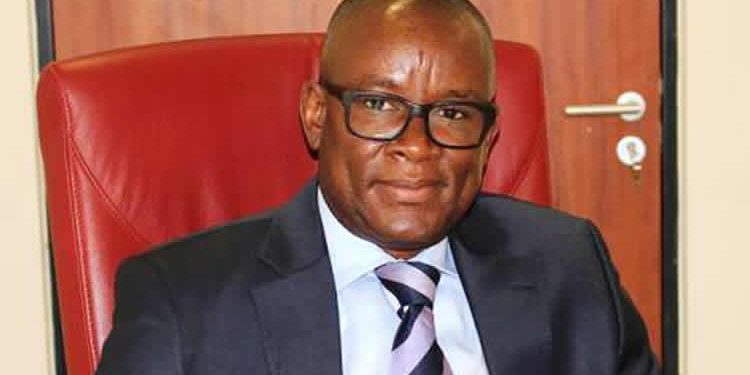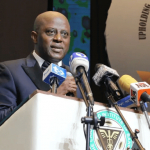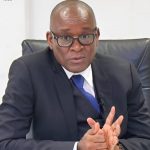The Minister of State for Industry, Senator Owan Enoh, has pledged to engage the Governor of the Central Bank of Nigeria (CBN), Olayemi Cardoso, over the $2.4bn foreign exchange forward contracts, which have been delayed, causing significant disruptions in the operations of manufacturers.
Enoh made this commitment during his first stakeholders’ town hall meeting with representatives from key industrial associations, including the Manufacturers Association of Nigeria (MAN), Nigeria Association of Chambers of Commerce, and the Nigeria Employers’ Consultative Association. This meeting, held on Wednesday, marked the minister’s first interaction with industry stakeholders since assuming office in October.
Addressing Industry Concerns
In response to concerns raised by industry leaders, particularly the impact of the delayed FX forward contracts, Enoh promised to take action swiftly. “As early as next week, I will begin to reach out to the CBN governor to discuss this issue. I will share the outcome of these discussions with MAN and the Organised Private Sector (OPS),” he said.
Enoh also emphasized the need for a multi-stakeholder approach to tackling Nigeria’s industrial challenges, announcing the creation of an Industrial Revolution Workgroup, co-chaired by himself and the President of MAN, Francis Meshioye. This group will meet quarterly to address ongoing issues and work towards long-term solutions.
Focus on Reviving Key Sectors
The minister also expressed concerns about the state of Nigeria’s textile industry, describing it as “dead” despite its historical significance as a major employer of Nigerians. “We need to explore what can be done to resuscitate that sector,” he stated, referencing past attempts and policies aimed at revitalizing moribund industries.
Support for Made-in-Nigeria Products
Additionally, the Director-General of MAN, Segun Ajayi-Kadir, highlighted the $2.4bn FX forward contracts as a critical challenge, urging the minister to ensure that Ministries, Departments, and Agencies (MDAs) prioritize the purchase of locally made products. “We need to make sure that all government bodies support made-in-Nigeria goods to stimulate our economy,” Ajayi-Kadir said.
The meeting also saw discussions on improving the use of locally available raw materials, with Professor Nnanyelugo Ike-Muonso, CEO of the Raw Materials Research and Development Council, noting that some materials being imported are available domestically. This, he explained, is contributing to pressure on the naira exchange rate.
Moving Forward
The minister’s proactive stance signals a new phase of collaboration between the government and the private sector, with a focus on policy reforms, resuscitating key sectors, and promoting the growth of Nigeria’s industrial base.










